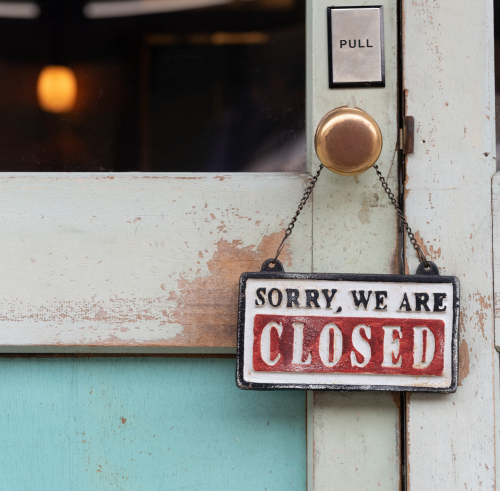Last updated: April 27 2020
CECRA Details: New Rent Relief for Small Businesses

Evelyn Jacks & Beth Graddon
The details behind the Emergency Commercial Rent Assistance program (CECRA) were finally announced on Friday, April 24. This new measure will be implemented at the provincial level to provide loans and/or forgivable loans to enable commercial property owners to reduce rent charged to their small business tenants by 75% for the months of April, May and June. But the program won’t be in place until mid-May, unfortunately.
The implementation of CECRA required a partnership with provincial and territorial governments who oversee the relationships with property owners and their tenants, and that agreement was reached last Friday.
A third player is The Canada Mortgage and Housing Corporation, which will administer and deliver the CECRA. This means the program is not available to landlords who own their buildings but still have tenants who can’t pay rent because their business has had to close. The loans made to the commercial landlord will be forgiven if they agree not to evict the tenant and to reduce the small business’ rent by at least 75% under a rent forgiveness agreement for the months of April, May and June.
Who is eligible for the CECRA? An eligible small business tenant is one that:
- Rent limitation. Pays monthly rent not exceeding $50,000 in gross rent payments.
- Required income loss. A non-essential small business that has temporarily closed, or who is experiencing a 70% reduction in pre-COVID-19 revenues.
- Calculating income loss. Compare revenues in April, May or June to the same month in 2019 or alternatively compared to average revenues for January and February 2020. This specifically leaves out a business which has experienced a 69% reduction or less. . .many have already pointed out how unfair this cut off seems to be.
- Mortgage limitation. This relief is in the form of a forgivable loan paid to the mortgage lender, who will extend the money to the landlord. Those landlords with clear title buildings and no mortgage will not receive support (possibly unless they re-mortgage).
- Not-for-profit organizations and charitable entities would also be considered for the program.
Who pays what? Landlords will receive half of the tenant's rent from the government in the form of a loan, paid directly to their mortgage lender. The tenant is then responsible for 25%, while the landlord remains responsible for the remaining 25%, the federal government and provinces would share the remaining 50%. 
Loans may be forgivable, provided the property owner and tenant entering into a rent forgiveness agreement (including a moratorium on eviction for three-months). The property owner must forgo profit from the rental property for the entire 3-month period.
What we know now about the Regional Relief and Recovery Fund (RRRF). The announcement about the CECRA is in addition to the $675 million of relief financing support the government has promised for SMEs who otherwise fall through support cracks. However this money will not flow directly to them; rather application must be made through Canada’s Regional Development Agencies (RDAs).
These agencies bill themselves as the “front line” for economic development in Canada. Their job is to “help to address key economic challenges by providing regionally tailored programs, services, knowledge and expertise.” There is a big emphasis on tourism in the government descriptors of the mandate of these agencies. Website visitors are pointed in the direction of one of six regional agencies for more information.
At least one of the regional agencies checked for this report did address the Regional Relief and Recovery Fund (RRRF). Western Economic Diversification Canada (WD) prepared an update on April 17 and April 27.
Specifically, the website notes that the RRRF will help firms to do the following two things: “mitigate financial pressures so that you can continue your operations and keep paying employees support business projects to prepare now for a successful recovery” (this is a direct quote) and “support business projects to prepare now for a successful recovery.”
The site goes on to say that “through the existing Community Futures Program, the RRRF will provide struggling small businesses with financial support, offer technical aid and resources and support local economic diversification initiatives.”
If you currently receive RDA funding, these agencies can help in the following ways:
- To receive additional funding and/or flexible payment arrangements
- To receive further support on a case-by-case basis
The WD site notes that those SMEs who have already received funding will either qualify for additional funding or enjoy deferred project repayments effective April 1, 2020 to July 1, 2020. In addition, interest charges will be deferred. However, there will be no loan forgiveness. SMEs will need to contact WD to formalize these deferrals into an amended repayment schedule.
Sadly, if your application is in the system but has not yet been evaluated, there may be delays in doing so, according to WD.
And, if you are new to working with RDAs and your business situation has deteriorated due to the COVID-19 shutdowns, these agencies are your only liaison for help in accessing the increased federal funding announced. The money is supposed to be available to:
- Help you stay in business
- Provide advice and pathfinding services to other federal programs and services.
The specifics, at the time of writing at least point back to previously announced initiatives on the federal site, including enhancements to EI work-sharing programs, waiving mandatory one-week waiting periods for EI and sickness benefits for workers and income supports for those not eligible for EI sickness benefits, which were being “explored”.
SMEs are encouraged to contact Service Canada at 1-800-OCanada (1-800-622-6232).
Knowledge Bureau Report will keep you posted as further information becomes available.
Additional educational resources: RSVP BY MAY 11. Enrol now for the Virtual CE Summit to get all the technical details of the COVID-19 Canada Emergency Response provisions, and their related tax audit requirements. By enrolling in the Virtual CE Summit now, you will also have access to the online Emergency Pandemic Response Benefits Course. This is Canada’s first online certificate training course for professionals in the Tax, Bookkeeping and Financial Services.
It’s a sought-after educational solution you need now from Knowledge Bureau in a new format: a professional online course plus interactive live virtual meeting.
Remember: The online learning release is available now on the Virtual Campus, and the interactive Zoom event will take place on May 13. Deadline for enrolment is May 11.
COPYRIGHT OWNED BY KNOWLEDGE BUREAU INC., 2020.
UNAUTHORIZED REPRODUCTION, IN WHOLE OR IN PART, IS PROHIBITED.
